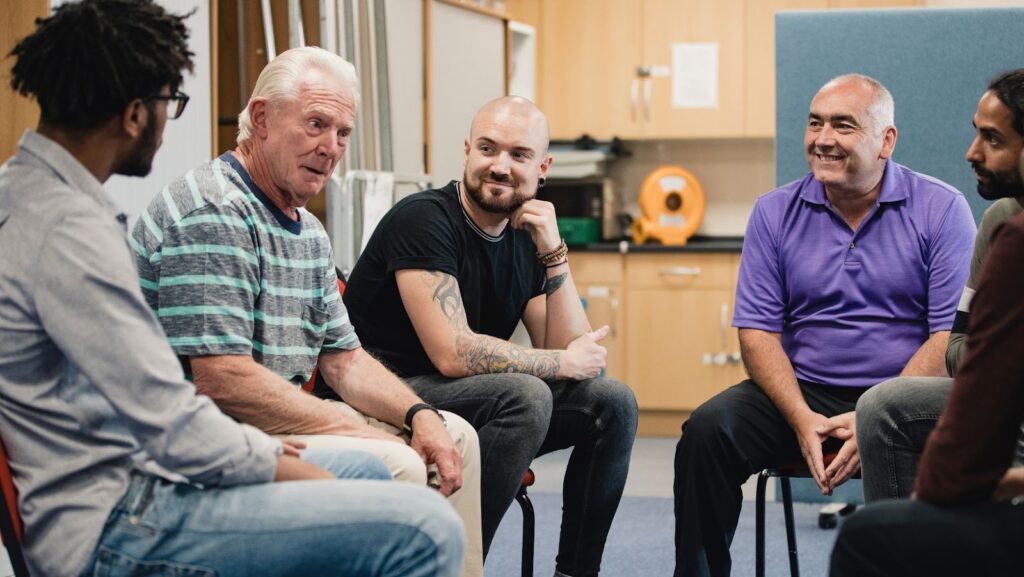The Role of Community Support in Addiction Recovery

Community support is a vital component of addiction treatment, providing a network of encouragement, resources, and accountability. Being part of a supportive community can significantly enhance your recovery journey and help you achieve long-term sobriety.
Understanding Community Support
Community support involves the collective assistance and encouragement from a group of people who share common experiences or goals. In the context of addiction recovery, it means being part of a network that understands your struggles and supports your journey to sobriety.
The Benefits of Community Support in Recovery
Being part of a supportive community offers numerous benefits that can enhance your recovery process.
Emotional Support
Having people who understand your experiences and challenges can provide emotional support. This support can help reduce feelings of isolation and loneliness, offering comfort and understanding during difficult times.
Accountability
Community support provides accountability, helping you stay committed to your recovery goals. Knowing that others are monitoring your progress and encouraging you to stay on track can be a powerful motivator.
Shared Experiences
Connecting with others who have gone through similar struggles can be incredibly validating. Sharing experiences, challenges, and successes can help you gain new insights and perspectives on your recovery journey.
Access to Resources
Community support often comes with access to valuable resources, such as information about treatment options, recovery tools, and local support services. These resources can help you navigate your recovery more effectively.
Building a Supportive Community
Building a supportive community takes effort and intentionality. Here are some steps to help you create a network that supports your recovery:
Join Support Groups
Support groups like Alcoholics Anonymous (AA), Narcotics Anonymous (NA), or SMART Recovery offer a community of individuals who understand your struggles.

Regularly attending meetings can help you build connections and receive ongoing support.
Participate in Online Communities
Online communities and forums provide an additional layer of support, especially if in-person meetings are not feasible. These platforms offer a space to share experiences, ask questions, and receive encouragement from others in recovery.
Engage in Community Activities
Participating in community activities, such as volunteering, sports, or hobby groups, can help you build a sense of belonging and purpose. Engaging in positive, healthy activities can support your recovery and expand your social network.
Foster Healthy Relationships
Focus on building and maintaining healthy relationships with family, friends, and peers who support your recovery. Open communication, mutual respect, and shared values are key components of strong, supportive relationships.
Maintaining Community Support
Maintaining community support requires ongoing effort and engagement. Here are some tips to help you stay connected:
Stay Consistent
Consistency is key to maintaining community support. Attend support group meetings regularly, stay active in online communities, and continue participating in community activities.

Consistent engagement helps strengthen your connections and support network.
Communicate Openly
Open communication is crucial for maintaining strong relationships. Share your progress, challenges, and successes with your support network. Being open and honest helps build trust and understanding.
Offer Support to Others
Supporting others in their recovery journey can be incredibly rewarding and strengthen your own recovery. Offer encouragement, share your experiences, and be a source of support for your peers.
Adapt to Changes
Life circumstances and recovery needs may change over time. Be open to adapting your support network as needed. This might involve finding new support groups, exploring different community activities, or seeking additional resources.

 Adjustable Desks: Finding the Perfect Balance Between Sitting and Standing
Adjustable Desks: Finding the Perfect Balance Between Sitting and Standing  Gowin18 Casino AU Overview: Safe Gaming & Big Bonuses for Aussies
Gowin18 Casino AU Overview: Safe Gaming & Big Bonuses for Aussies  The Evolution of Aviation Engine Components and Their Role in Modern Flight
The Evolution of Aviation Engine Components and Their Role in Modern Flight